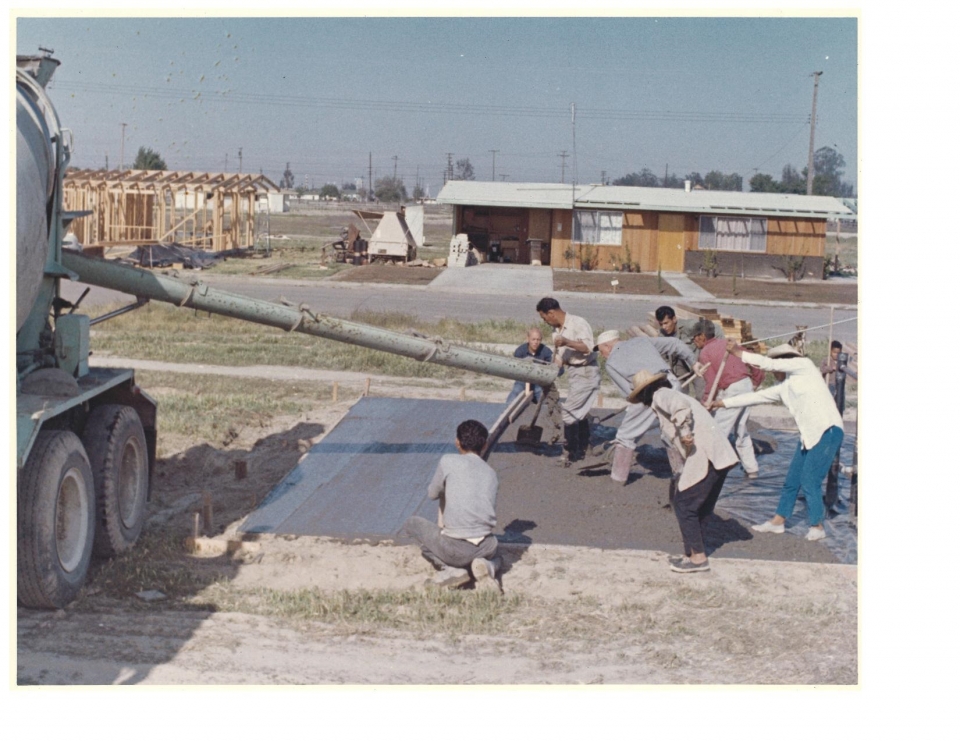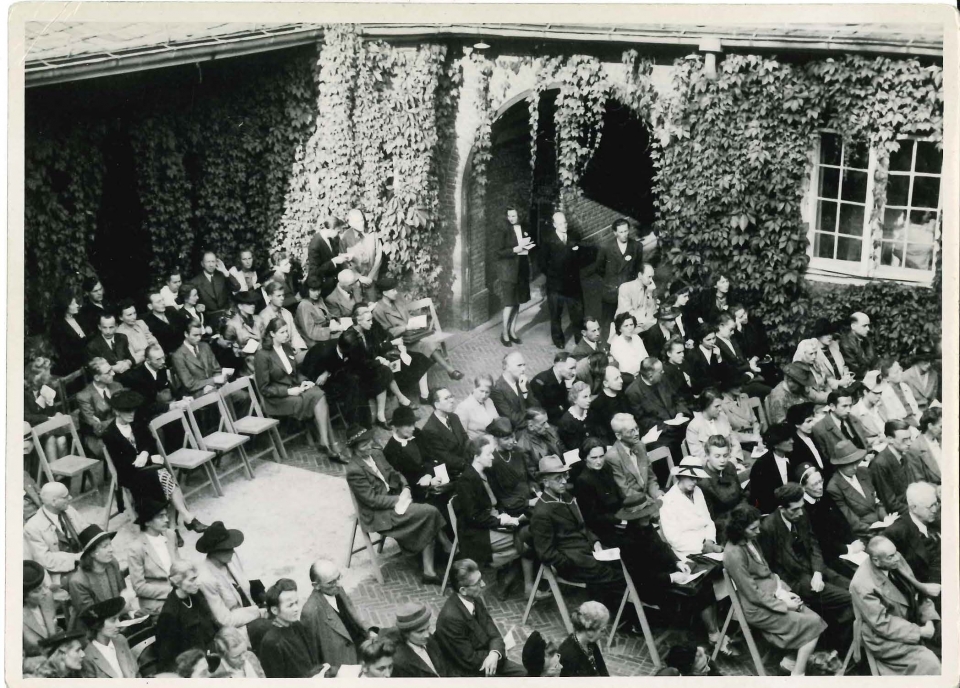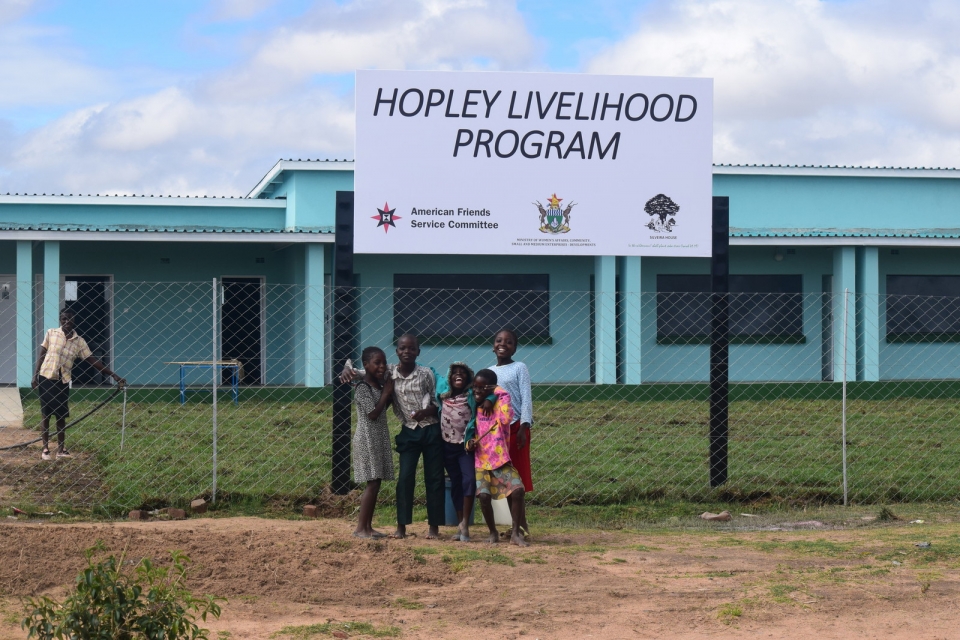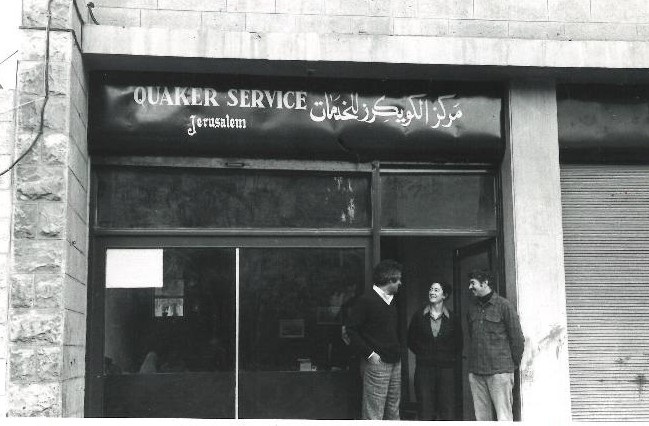We look at organizations that AFSC helped to start.
By Theresa Kirby
The American Friends Service Committee was founded in 1917 by conscientious objectors seeking to establish alternatives to military service. Volunteers serving with AFSC met critical needs during and after the two world wars, from feeding starving children to assisting in Europe’s reconstruction. In 1947, AFSC and the British Friends Ser¬vice Council were awarded the Nobel Peace Prize on behalf of Quak¬ers everywhere for their efforts. AFSC’s experiment in non-military service was a success.
In the years after World War II, AFSC established a program called Quaker International Voluntary Service, which later became the Volun¬tary International Service Assignment (VISA). Thousands of young ide¬alists made two-year commitments to serve in communities across the U.S. as well as in Africa, the Middle East, Asia, Central America, and Cuba. The program was life changing for participants and helped inspire President Kennedy’s Peace Corps, established in 1961.
For more than a century, AFSC has supported a wide range of efforts to address injustices and promote lasting peace. And like the VISA program, many of those efforts have helped launch others— whether by starting a new nonprofit or by sharing a successful model with others. Here are a few more examples.
Self-help housing

AFSC’s first self-help housing program, Penn-Craft, was launched in the coal-mining country of Western Pennsylvania in 1937. Involving communities in building their own affordable housing was powerful —and highly replicable. In the decades that followed, AFSC started several more self-help housing initiatives as well as other kinds of housing work. As the Black Power movement gained prominence in the 1960s, AFSC handed off housing work and funds in support of the newly established Roxbury Action Program in Roxbury, Massachusetts, whose impact can still be seen today. And in the 1960s and ’70s, our programs for farmworkers in Florida and California became Florida Non-Profit Housing, Inc. and Self-Help Enterprises, which have continued to grow and serve as models for others.
CARE
“I thought you would be interested to know that last Wednesday I presided at the setting up of the organization called Cooperative America for Remittances to Europe, called CARE for short,” wrote AFSC Executive Secretary Clarence Pickett in 1945. AFSC was one of 22 organizations involved in founding CARE to send food parcels to Europeans in the wake of World War II, when many were at risk of starvation. Decades later, CARE is still working to end poverty.
Mittelhof Center

In 1947, AFSC helped found an organization called Nachbarschaftsheim Mittelh in Berlin, Germany to help people recover from hardships and participate in democracy. Today, the organization has more than 270 employees and volunteers working in 25 locations and has projects ranging from providing daycare to teaching courses, offering family counseling, putting on cultural events, and promoting good citizenship.
Morodok
In 1997, AFSC started a program to help people living in rural communities around Kompong Som Bay, Cambodia, develop sustainable livelihoods. Over time, Cambodian staff established a vision and structure for localizing the work, registering Morodok as a local nongovernmental organization in 2011. The organization continues to work with community groups to assert their rights, manage natural resources, and improve livelihoods.
Hopley

In 2012, AFSC began working with a community of internally displaced people living in Hopley, on the outskirts of Harare, Zimbabwe, supporting them in learning trades and developing sustainable incomes. In 2018, the community built a center for business and livelihoods training with funding from AFSC. The building was completed and officially handed over to the community in December and includes facilities for an internet café, provisions for people with disabilities, meeting and training rooms, and six workspaces to be shared on a rotating basis with up to 600 people. One community member remarked, “This facility is a centre of community life. Within these walls, unity can be created, solutions can be found, and conversations can be held that will change many lives.”
Jerusalem Legal Aid

In 1974, AFSC established the Quaker Service Information and Legal Aid Center in Jerusalem to assist families whose loved ones had been detained under Israel’s “preventative detention and selective deportation” policies, particularly in cases involving violations of civil rights. In 1997, the Jerusalem Legal Aid and Human Rights Center became an independent organization, continuing to provide pro bono legal aid and advocacy in defense of human rights.